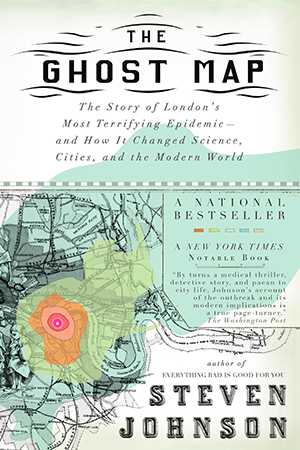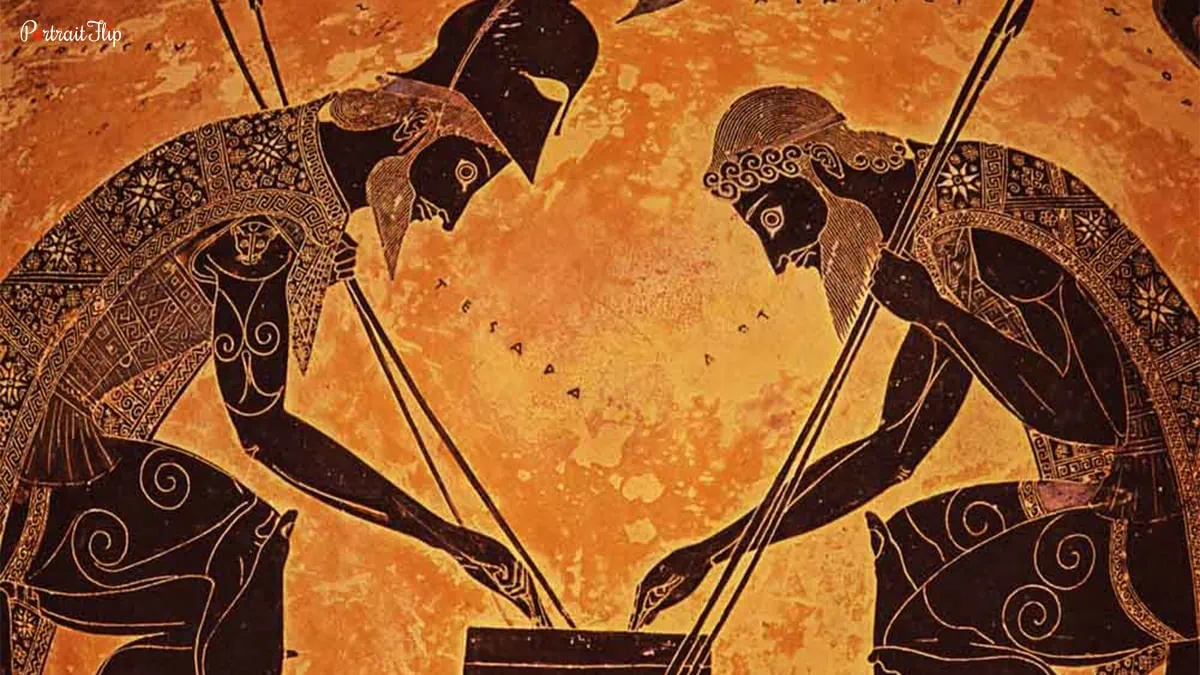
Library
History
Colin Woodard
American Nations
Particularly relevant in understanding who voted for who in this presidential election year, this is an endlessly fascinating look at American regionalism and the eleven “nations” that continue to shape North America According to award-winning journalist and historian Colin Woodard, North America is made up of eleven distinct nations, each with its own unique historical roots. In American Nations he takes readers on a journey through the history of our fractured continent, offering a revolutionary and revelatory take on American identity, and how the conflicts between them have shaped our past and continue to mold our future. From the Deep South to the Far West, to Yankeedom to El Norte, Woodard (author of American Character: A History of the Epic Struggle Between Individual Liberty and the Common Good) reveals how each region continues to uphold its distinguishing ideals and identities today, with results that can be seen in the composition of the U.S. Congress or on the county-by-county election maps of any hotly contested election in our history.
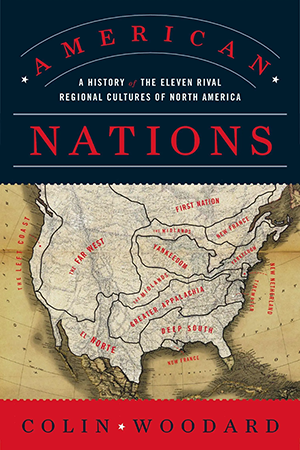
Bill Bryson
A Really Short History of Nearly Everything
Adapted from A Short History of Nearly Everything, this stunningly illustrated book from the extraordinary Bill Bryson takes us from the Big Bang to the dawn of science, and everything in between. Perfect for ages 8 to 80. Ever wondered how we got from nothing to something? Or thought about how we can weigh the earth? Or wanted to reach the edge of the universe? Uncover the mysteries of time, space and life on earth in this extraordinary book - a journey from the centre of the planet to the dawn of the dinosaurs, and everything in between. And discover our own incredible journey, from single cell to civilisation, including the brilliant (and sometimes very bizarre) scientists who helped us find out the how and why.
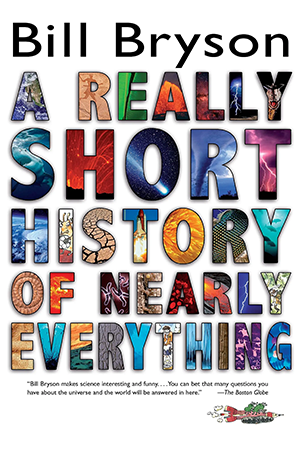
Ben Lerner
10:04
Following the international buzz for his debut, Leaving the Atocha Station, comes 10:04, Ben Lerners electric second novel that blends artistry and wit, intelligence and tenderness. A unique collision between art and life by an extraordinary young writer. For readers of Jeffrey Eugenides, Jonathan Lethem, Sheila Heti. Leaving the Atocha Station was hailed as one of the truest (and funniest) novels...of his generation (Lorin Stein, New York Review of Books), a work so luminously original in style and form as to seem like a premonition, a comet from the future. Now Lerners second novel departs from Atochas exquisite ironies in order to explore new territories of thought and feeling. In the last year, the narrator of 10:04 has enjoyed unexpected literary success, has been diagnosed with a potentially fatal heart condition, and has been asked by his best friend to help her conceive a child, despite his dating a rising star in the visual arts. In a New York of increasingly frequent super storms and political unrest, he must reckon with his biological mortality, the possibility of a literary afterlife, and the prospect of (unconventional) fatherhood in a city that might soon be under water. In prose that Jonathan Franzen has called hilarious...cracklingly intelligent...and original in every sentence, Lerner captures what its like to be alive now, when the difficulty of imagining a future has changed our relation to both our present and our past. Exploring sex, friendship, medicine, memory, art, and politics, 10:04 is both a riveting work of fiction and a brilliant examination of the role fiction plays in our lives.
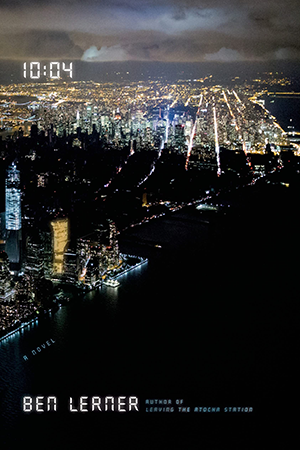
David Graeber
The Dawn of Everything
A dramatically new understanding of human history, challenging our most fundamental assumptions about social evolution—from the development of agriculture and cities to the origins of the state, democracy, and inequality—and revealing new possibilities for human emancipation. For generations, our remote ancestors have been cast as primitive and childlike—either free and equal innocents, or thuggish and warlike. Civilization, we are told, could be achieved only by sacrificing those original freedoms or, alternatively, by taming our baser instincts. David Graeber and David Wengrow show how such theories first emerged in the eighteenth century as a conservative reaction to powerful critiques of European society posed by Indigenous observers and intellectuals. Revisiting this encounter has startling implications for how we make sense of human history today, including the origins of farming, property, cities, democracy, slavery, and civilization itself. Drawing on pathbreaking research in archaeology and anthropology, the authors show how history becomes a far more interesting place once we learn to throw off our conceptual shackles and perceive what’s really there. If humans did not spend 95 percent of their evolutionary past in tiny bands of hunter-gatherers, what were they doing all that time? If agriculture, and cities, did not mean a plunge into hierarchy and domination, then what kinds of social and economic organization did they lead to? The answers are often unexpected, and suggest that the course of human history may be less set in stone, and more full of playful, hopeful possibilities, than we tend to assume. The Dawn of Everything fundamentally transforms our understanding of the human past and offers a path toward imagining new forms of freedom, new ways of organizing society. This is a monumental book of formidable intellectual range, animated by curiosity, moral vision, and a faith in the power of direct action. Includes Black-and-White Illustrations
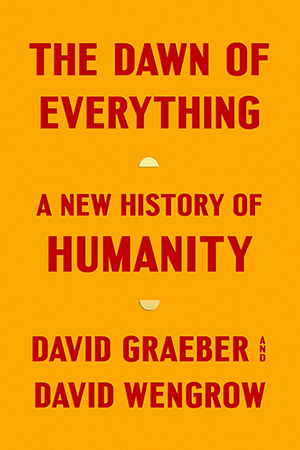
Peter Frankopan
The Silk Roads
Far more than a history of the Silk Roads, this book is truly a revelatory new history of the world, promising to destabilize notions of where we come from and where we are headed next. From the Middle East and its political instability to China and its economic rise, the vast region stretching eastward from the Balkans across the steppe and South Asia has been thrust into the global spotlight in recent years. Frankopan teaches us that to understand what is at stake for the cities and nations built on these intricate trade routes, we must first understand their astounding pasts. Frankopan realigns our understanding of the world, pointing us eastward. It was on the Silk Roads that East and West first encountered each other through trade and conquest, leading to the spread of ideas, cultures and religions. From the rise and fall of empires to the spread of Buddhism and the advent of Christianity and Islam, right up to the great wars of the twentieth century—this book shows how the fate of the West has always been inextricably linked to the East. Also available: The New Silk Roads, a timely exploration of the dramatic and profound changes our world is undergoing right now—as seen from the perspective of the rising powers of the East.
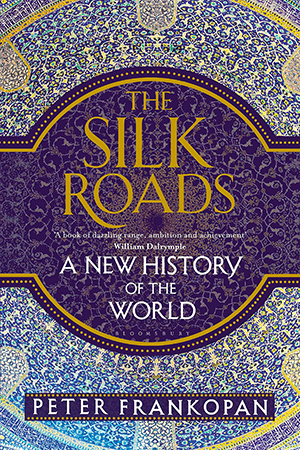
unknown
Voynich Manuscript
A facsimile of an object of unknown authorship that has been the source of study and speculation for centuries and remains undecipherable to this day.
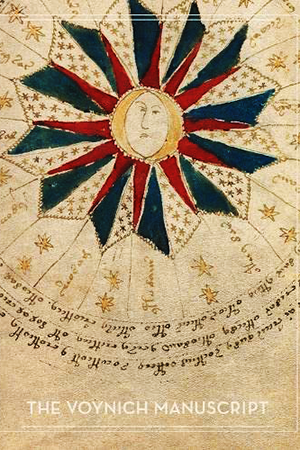
Steven Shapin
Leviathan and the Air-Pump
Leviathan and the Air-Pump examines the conflicts over the value and propriety of experimental methods between two major seventeenth-century thinkers: Thomas Hobbes, author of the political treatise Leviathan and vehement critic of systematic experimentation in natural philosophy, and Robert Boyle, mechanical philosopher and owner of the newly invented air-pump. The issues at stake in their disputes ranged from the physical integrity of the air-pump to the intellectual integrity of the knowledge it might yield. Both Boyle and Hobbes were looking for ways of establishing knowledge that did not decay into ad hominem attacks and political division. Boyle proposed the experiment as cure. He argued that facts should be manufactured by machines like the air-pump so that gentlemen could witness the experiments and produce knowledge that everyone agreed on. Hobbes, by contrast, looked for natural law and viewed experiments as the artificial, unreliable products of an exclusive guild. The new approaches taken in Leviathan and the Air-Pump have been enormously influential on historical studies of science. Shapin and Schaffer found a moment of scientific revolution and showed how key scientific givens--facts, interpretations, experiment, truth--were fundamental to a new political order. Shapin and Schaffer were also innovative in their ethnographic approach. Attempting to understand the work habits, rituals, and social structures of a remote, unfamiliar group, they argued that politics were tied up in what scientists did, rather than what they said. Steven Shapin and Simon Schaffer use the confrontation between Hobbes and Boyle as a way of understanding what was at stake in the early history of scientific experimentation. They describe the protagonists divergent views of natural knowledge, and situate the Hobbes-Boyle disputes within contemporary debates over the role of intellectuals in public life and the problems of social order and assent in Restoration England. In a new introduction, the authors describe how science and its social context were understood when this book was first published, and how the study of the history of science has changed since then.
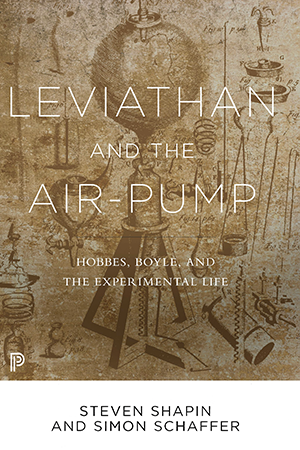
Peter H. Marshall
The Theatre of the World
Marshall presents the story of Rudolf II, an emperor more interested in the great talents and minds of his times than in the exercise of his power. This is a human story, involving the sweep of culture and history. It offers a perspective on a pivotal moment in the history of Western civilisation.
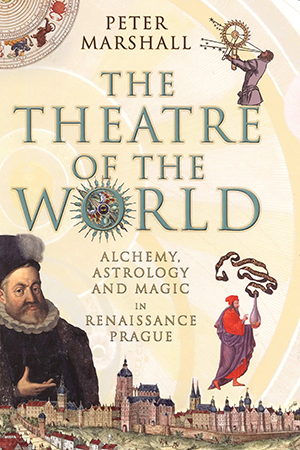
Steven Johnson
The Ghost Map
A National Bestseller, a New York Times Notable Book, and an Entertainment Weekly Best Book of the Year from the author of Extra Life “By turns a medical thriller, detective story, and paean to city life, Johnson's account of the outbreak and its modern implications is a true page-turner.” —The Washington Post “Thought-provoking.” —Entertainment Weekly It's the summer of 1854, and London is just emerging as one of the first modern cities in the world. But lacking the infrastructure-garbage removal, clean water, sewers-necessary to support its rapidly expanding population, the city has become the perfect breeding ground for a terrifying disease no one knows how to cure. As the cholera outbreak takes hold, a physician and a local curate are spurred to action-and ultimately solve the most pressing medical riddle of their time. In a triumph of multidisciplinary thinking, Johnson illuminates the intertwined histories of the spread of disease, the rise of cities, and the nature of scientific inquiry, offering both a riveting history and a powerful explanation of how it has shaped the world we live in.
